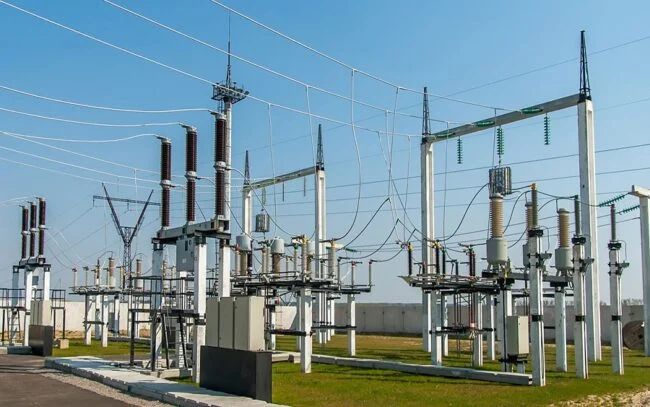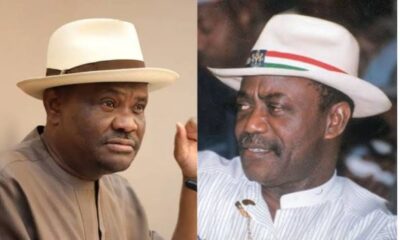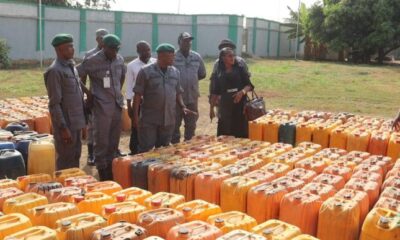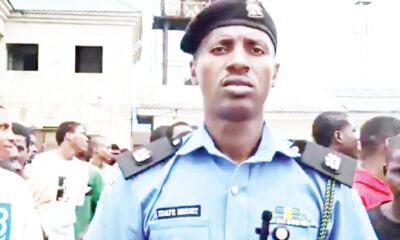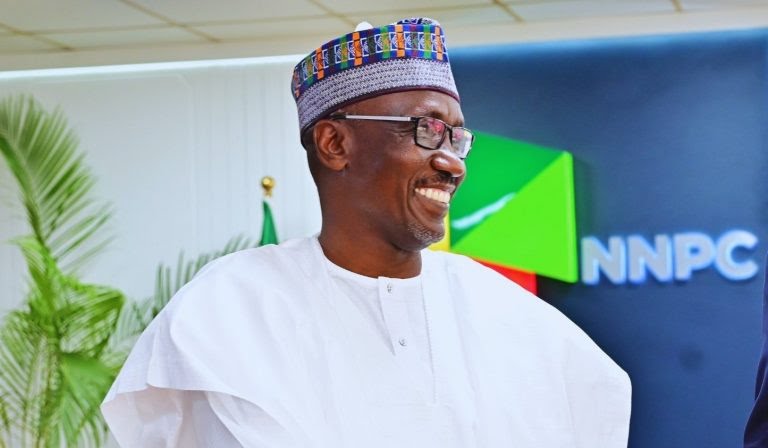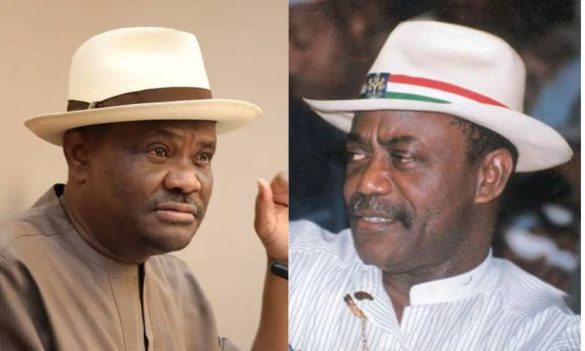The Minister of the Federal Capital Territory, Nyesom Wike, on Sunday, strongly criticized ex-Rivers State Governor, Peter Odili, calling him a rent seeker and an ingrate for supporting the current Governor, Siminalayi Fubara.
Wike was responding to Odili’s recent statement that Fubara stopped him (Wike) from turning Rivers into his personal estate.
According to a statement on Sunday from his media aide, Leke Olayinka, Wike made his remarks at a Special Thanksgiving Service organized by the factional Speaker of the Rivers State House of Assembly, Martin Amaewhule, at the Church of Nigeria (Anglican Communion), Oro-Igwe/Eliogbolo Archdeaconry Church of the Holy Spirit, Eliozu Parish, Port Harcourt.
Wike, who labeled Odili an ingrate, recounted how he built a house for the former governor and mentioned that Odili also had some of his family members in government positions, turning Rivers into his private estate.
“Must you be a trader all the time? As governor for eight years, what else are you looking for? You know, I didn’t want to say anything. But somebody called me last night, and told me what someone said in the social media. I said until I read it myself. This morning, I read in the newspapers, what our former Governor, Sir Dr Peter Odili said.”
“What did he say? He said that the present governor has been able to stop one man who wanted to convert Rivers State to his personal estate. Between him and myself, who has turned Rivers State to his personal estate? His wife is a Chairman of Governing Council, his daughter is a commissioner, his other daughter is a judge and he is the general overseer. Who has now turned Rivers State to his private estate? I am sure if care is not taken, if there is a chance, he can even arrange a marriage for the governor.”
“In 2007 after he left office, he couldn’t come near power in the State because Amaechi was the governor then. He was gone! Like somebody said that God will use someone to lift up someone. When I came in as governor in 2015, I won’t use the word resurrected, but I brought him back to life,” Wike said.
The Minister also mentioned that Odili had previously praised him as being better than past governors in the state, asserting that the former Governor had reduced himself to a laughingstock.
“All of you here remember when I was governor, this same Odili praised me to high heaven. In fact, he said then that all past governors in Rivers State combined did not do better than me. Now, because you have organized a Christmas Carol for the governor, I didn’t say you should not do your Christmas Carol. But why reduce yourself to such a laughing stock? People will still see it on television how he was telling the whole world then how God used me to bring him back to life politically.”
“The governor that all of us made has not spent one year in office and the same Odili was already saying that the governor has beaten the records of all the past governors of Rivers State. When I was there, he said I had surpassed the records of all the past governors, including himself. What can he even show that he did in his eight years as governor? But a governor has not spent one year, you are saying he has done more than all the past governors.”
The Minister further emphasized that the former Governor had no significant accomplishments during his eight years in office. He added that Odili failed in his Presidential bid and opposed Fubara’s emergence as Governor of Rivers State.
“You spent eight years as governor and someone who hasn’t spent one year has surpassed your records, what manner of elder talks like that? Is that what an elder statesman should be known for?”
“When I was plotting who will be governor after me, was he (Odili) there? Then, he was complaining about this governor, saying that he couldn’t stand before the public to talk. But today, he is organizing Christmas Carol for the same governor he was against then.”
“He has forgotten all that he said in the past. I named this after you, I named that after your wife. What have I not done? This is a man who wanted to run for President then, he didn’t have the balls, he chickened out. Simply because Obasanjo said no, he will not contest, he ran away. Because of him, I never invited Obasanjo to Rivers State to inaugurate projects. I felt it would humiliate him,” Wike said.

 BIG STORY5 days ago
BIG STORY5 days ago
 BIG STORY4 days ago
BIG STORY4 days ago
 BIG STORY1 day ago
BIG STORY1 day ago
 BIG STORY3 days ago
BIG STORY3 days ago
 BIG STORY2 days ago
BIG STORY2 days ago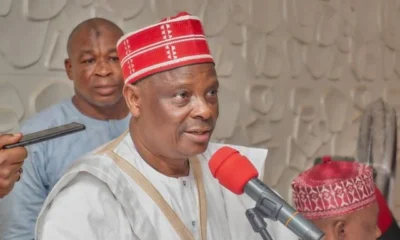
 BIG STORY5 days ago
BIG STORY5 days ago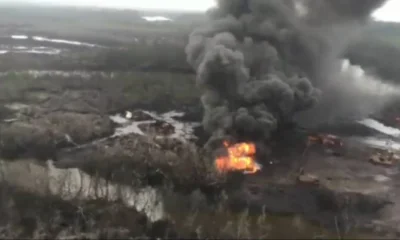
 BIG STORY2 days ago
BIG STORY2 days ago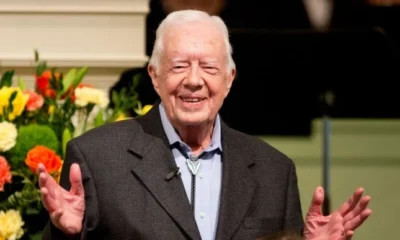
 BIG STORY2 days ago
BIG STORY2 days ago




